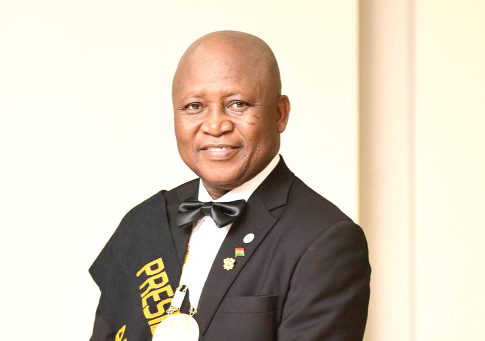
Government urged to promote manufacturing sector
The President of the Association of Ghana Industries (AGI), Dr Yaw Adu Gyamfi, has observed that the Ghana Beyond Aid agenda can be fully attained if the government focuses on the promotion of the local manufacturing sector.
He said he was worried that more than half of the 56 factories under the One-district, One-factory (1D1F) initiative scheduled to be inaugurated were 100 per cent foreign-owned.
He urged the government to aggressively implement its strategic industrial initiatives to ensure that all products consumed by Ghanaians, including pharmaceuticals, were locally produced, adding: "It is sad that 80 per cent of all drugs in Ghana are imported into the country."
New Year School
On the second day of the 71st New Year School and Conference organised by the School of Continuing and Distance Education of the University of Ghana in Accra last Wednesday, Dr Adu Gyamfi said the AGI’s position was that the transformation of the manufacturing sub-sector must be policy-driven.
This year's three-day event is on the theme: "Attaining Ghana Beyond Aid: Prospects and challenges", and the sub-topic for the second day’s discussion was: "Ghana Beyond Aid and the transformation of the manufacturing sector".
Policies
Dr Adu Gyamfi cited some policies which needed to be revisited to promote the industrial transformation agenda, including the Ghana Industrial Policy which was launched in 2011.
Others are the location tax, tax holidays, stimulus packages, VAT deferment, national export strategy and the Ghana EXIM as a key pillar to support export market development.
"Currently, we have 85 per cent of all companies in Ghana located in the Greater Accra Region and 23 per cent in the Ashanti Region, with less than two per cent in the other regions.
“The stimulus packages are for struggling companies and the national export strategy was launched in 2012 basically to help increase the non-traditional export sector, but not much has been done. This is all because of lack of continuity of policies because when a new government comes to power, the old policies of the previous government are set aside.
"Last year, we imported 18 million toothpicks and we are creating jobs in China, not in Ghana. We are not creating sustainable jobs. Most people, after university education, want to sit in the office and just write. The manufacturing sector is what sustains the economy, where we produce what we consume and that is what really makes the economy," he said.
The AGI President listed some of the challenges affecting the development of the industrial sector as the high cost of electricity, lack of infrastructural facilities, the high cost of borrowing, the cedi depreciation and exchange rate volatility and unfair competition from imports, adding: "To transform this economy, these are some of the things that we must look at."
Government commitment
The Minister of Trade and Industry, Mr Alan Kyerematen, in a speech read on his behalf by the Deputy Chief Commercial Officer in charge of Industrial Parks and Commercial Zones at the Ministry of Trade and Industry, Dr John Hopkins Asiedu, said the focus of the government since it assumed power had been to transform the industrial sector, with manufacturing as its core objective.
That, he said, would propel the nation to take advantage of the continental free trade agenda, whose secretariat Ghana was hosting.
"No country has developed without industrialisation. It is not by accident that the 10 largest economies in the world are the most industrialised economies," he said.
The Paramount Chief of the Essikado Traditional Area, Nana Kobina Nketsia V, who chaired the discussions, urged Ghanaians to love their country and work hard to ensure its development.
He said the attitude of patronising foreign products over locally manufactured ones was also affecting the development of the economy.
